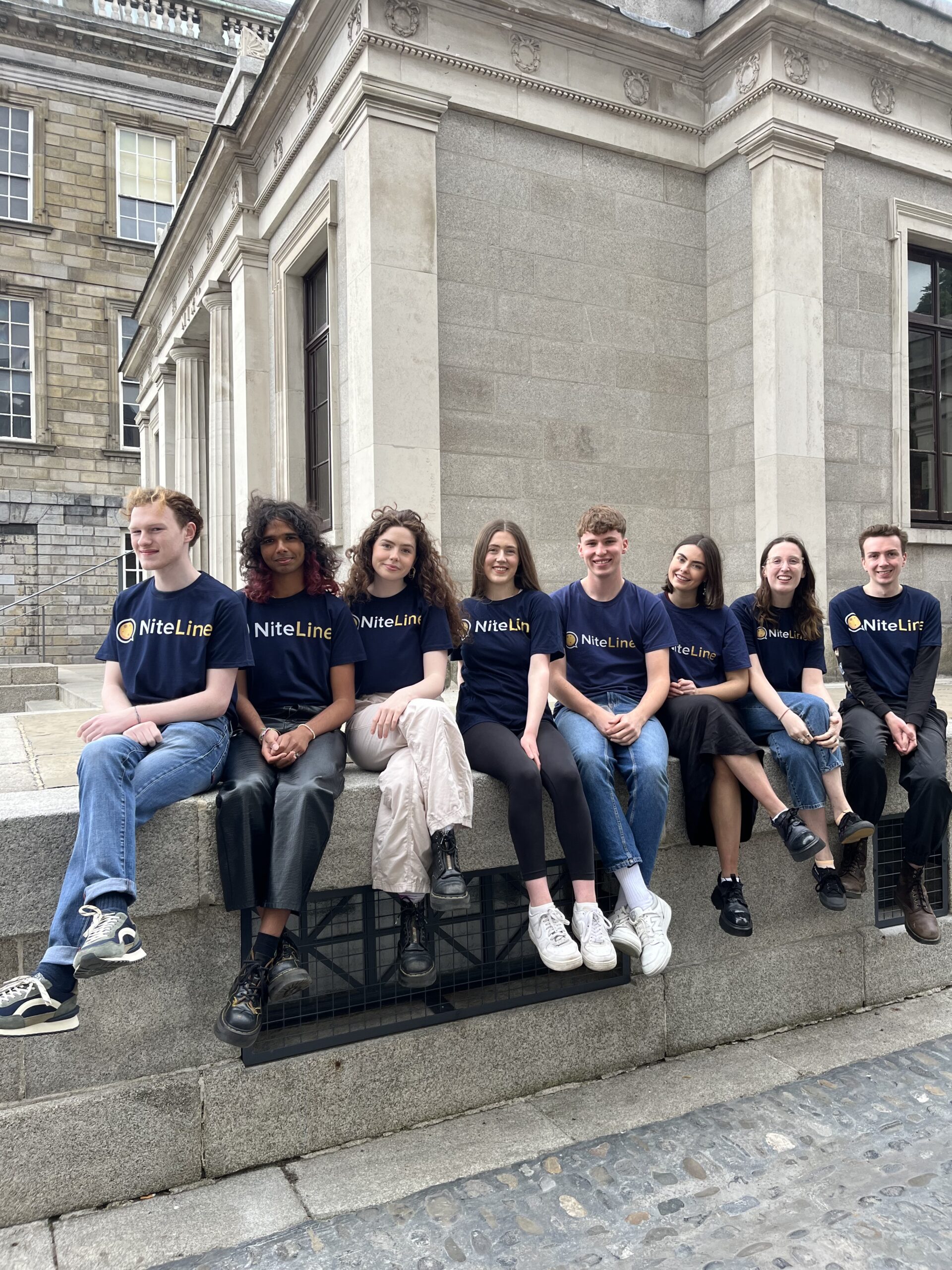In the lead up to exams, The University Times spoke to NiteLine’s head of publicity, Jamie Dugdale about all the charity does to support students, how it has grown over the years and how you can get involved.
NiteLine is a listening and information service that began back in 1993, operating between Trinity College Dublin and University College Dublin. Today the charity has expanded across eleven universities throughout Ireland, expanding beyond Dublin to include Louth, Kildare and most recently Limerick. Talking about how the charity had developed over the past 30 years, Dugdale pointed to this “expansion and growth […] a kind of flourishing” as the key development. “We’ve never changed in our values and what we stand by, which is; run by students, for students, it’s all about peer support […] but now we’re available to around 150,000 students.”
Dugdale’s journey to being involved in NiteLine began with a tutor advertising them at the start of a lecture in second year. Later that year, a friend of Dugdale’s became a Niteline public face and he approached him to find out how to join. After a successful application he got involved with charity and went onto run for head of publicity. Dugdale says creating “a real visible presence with NiteLine” is at the forefront of his plans for the year, as “publicity is so fundamental to the success of a charity”.
The service’s focus is peer support and empathy, which Dugdale emphasises are “an integral thing to have at the centre of a university environment. College can be such a stressful time, whether it’s a part-time job, whether it’s college exams, assignments, thinking about what you want to do after college, you know, there really is a million and one things going on so peer support is such an important thing to have there.”
NiteLine pride themselves on the diverse nature of their calls, with users of the service ranging from PhD students to those on Erasmus. Their statistics from 2023-2024 show that 18.6% of their calls were college related, 13.4% of calls were relationship related, 8.1% were related to loneliness and 4% were related to suicide.
For those feeling a bit nervous about reaching out or availing of the service, Dugdale pointed to NiteLine’s four pillars to provide insight and reassurance. The first is anonymity, so the caller and the volunteer both remain anonymous. The second pillar is confidentiality, meaning anything the caller says to the volunteer will stay between them. The next pillar is non-judgemental; NiteLine is a non-judgemental service. Dugdale explains, “Non-judgmental in the sense that it’s a safe space, we’re not going to judge the callers for anything that they say. I suppose that kind of links to our motto, and we do truly believe it, that no problem is too big or too small […] there’s no triage system where we rank to see which one’s coming first, it really is, when we press the button to accept a call, just the caller, and the volunteer for those twenty minutes, an hour or two hours that the caller needs to talk.”
The final pillar is non-directive, which Dugdale suggests is perhaps a lesser known but important part of the service. “We’re never going to tell the caller to do something, we’re just there to listen, and to support them any way we can. We also are an information service, so we are able to direct them towards information that might be able to help them more, or a resource that might be valuable to them. We also have such close links with universities that we have lists of resources from each of our affiliated colleges, only if they feel comfortable to share with us what university they go to, because, obviously, it is an anonymous service.” As well as a phone service, in 2012 NiteLine introduced an instant messaging service that students can avail of if they would feel more comfortable communicating over message.
NiteLine reopened their phone lines this year on 16th September with close to 100 volunteers and are opening a second call taking centre in Limerick, following the recent affiliation. They hope to continue to grow the service over the next few years to reach even more students.
Additionally, as a service committed to student mental health, they are planning to work with different youth organisations and mental health charities. For students who would like to get involved or support the charity, Dugdale recommends following the NiteLine social media where they post information on events, upcoming information stands as well as ways to get involved.
Additionally, they always accept expressions of interest for volunteers, including non-call-taking volunteers. By emailing [email protected] you will be directed towards what you can do at the moment to get involved.
Finishing up the interview, Dugdale reinforced the NiteLine motto; “We really do mean it when we say no problem is too big or too small […] it’s as simple as that. We are available and able to listen and help in whatever way possible.”
NiteLine is open every night of term, including weekends from 9 pm – 2.30 am. The service is available for undergraduate, masters, and PhD students as well as students on placement or erasmus.
To get in touch with Niteline students can phone 1800 793 793 or visit them on their website at https://niteline.ie.







